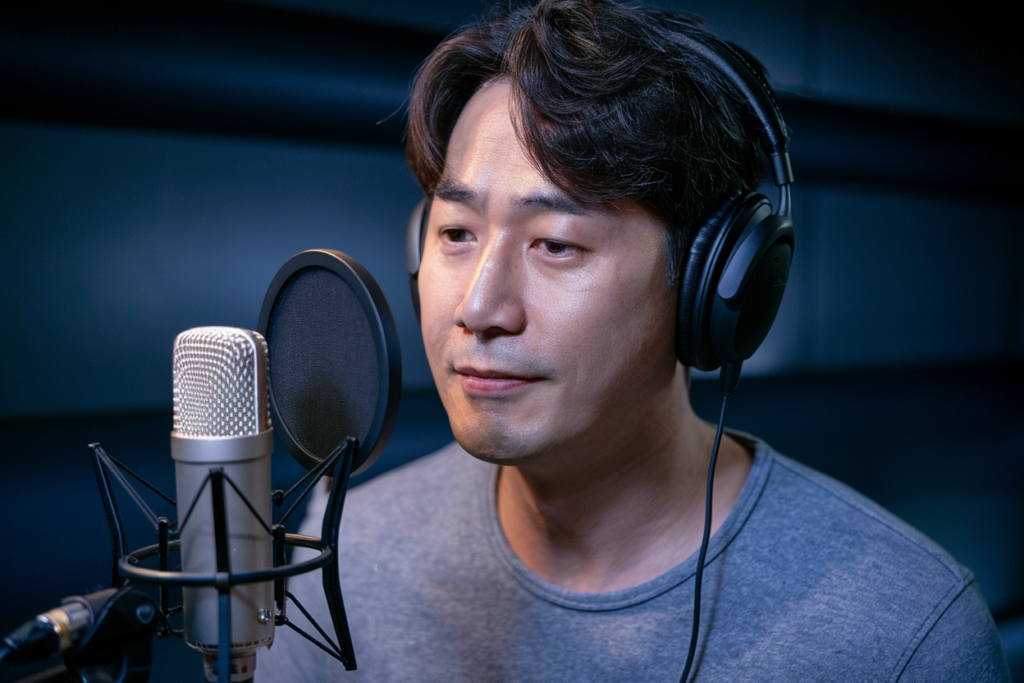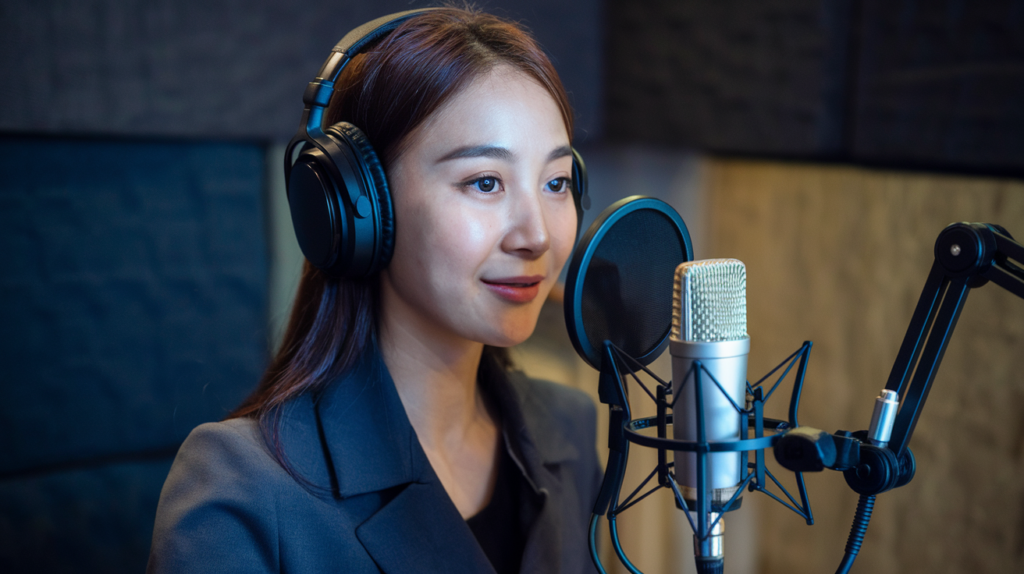Key Takeaways
- Understanding Korean Accents: Familiarize yourself with regional variations, such as the Seoul, Busan, Incheon, and Jeju accents, to enhance authenticity in your voice-over projects.
- Key Characteristics: Recognize the importance of intonation patterns, vowel sounds, and consonant clarity that define each accent and affect emotional delivery.
- Impact on Voice Over Work: The right accent can significantly influence audience engagement by conveying emotions and cultural nuances relevant to your content.
- Audience Perception: Authenticity in your chosen accent fosters trust and relatability with listeners, enhancing their overall experience with your work.
- Assessing Project Requirements: Tailor your accent choice based on the context of your project and target audience for more effective communication.
- Resources for Learning Accents: Utilize online courses, practice tools, and immersive media to master a Korean accent effectively.
Ever wondered how to choose a Korean accent for your voice-over project? With the rise of K-dramas and pop culture, nailing that authentic sound can make all the difference in connecting with your audience. Whether you’re dubbing an animated series or creating content for social media, selecting the right accent isn’t just about sounding good; it’s about conveying emotion and authenticity.
Understanding Korean Accents
Understanding the nuances of Korean accents is essential for any voice artist aiming to deliver an authentic performance. Different regions in Korea offer distinct accents, each adding unique flavor to your voiceover work.
Regional Variations
Korean accents vary significantly across different areas. For instance:
- Seoul Accent: The standard accent often used in media and popular culture. It’s clear and widely understood.
- Busan Accent: Known for its softer intonations and a more melodic tone, it may add warmth to your character portrayal.
- Incheon Accent: Features slight variations in vowel sounds that can enhance specific regional characters.
- Jeju Accent: Unique due to its mix of dialects; it often incorporates local expressions that can make performances feel genuine.
Choosing the right accent depends on your project’s target audience and context. If you’re dubbing a K-drama or animated series set in Busan, adopting the local accent enhances authenticity.
Key Characteristics
Each Korean accent has distinctive features that affect pronunciation and emotion delivery:
- Intonation Patterns: Certain regions emphasize different syllables, impacting how emotions are conveyed.
- Vowel Sounds: Variations exist between short and long vowels; mastering these adds depth to your voiceovers.
- Consonant Clarity: Some accents have sharper consonants which can create a lively character presence.
Being aware of these characteristics helps you connect better with listeners. The goal isn’t just to mimic an accent but also to evoke genuine feelings through voice acting. Consider practicing with native speakers or listening closely to regional media for deeper insight into the nuances of each accent you might choose for your projects.
Importance of Choosing the Right Accent
Choosing the right Korean accent significantly impacts your voice over projects. Authenticity resonates with audiences, whether you’re dubbing a K-drama or producing social media content.
Impact on Voice Over Work
The impact of accent choice on voice over work is profound. Different accents can convey varying emotions and cultural nuances, enhancing character depth and engagement in your audio project. For example, using the Seoul accent lends credibility for urban settings, while a Busan accent might evoke warmth and camaraderie. You don’t just want to sound good; you want to connect emotionally with listeners through your delivery.
Audience Perception
Audience perception hinges on authenticity in voiceovers. When you employ an appropriate accent, it fosters trust and relatability among listeners. They feel more engaged when they hear familiar sounds that match their experiences or expectations. An authentic regional accent can break barriers and create a genuine connection between the voice artist and the audience, making your project more impactful.
Understanding these elements ensures that every aspect of your performance aligns with audience expectations and enhances overall quality in your work as a voice actor or actress.
Steps to Choose a Korean Accent for VO
Choosing the right Korean accent for your voice-over project is essential. It not only enhances authenticity but also connects you with your audience on a deeper level. Here’s how to make that choice effectively.
Assessing Project Requirements
Begin by considering the project’s context and target audience. Ask yourself questions like: What type of content are you producing? Is it an animated series, a commercial, or perhaps an educational video? Different projects call for different accents. For instance, if you’re working on urban-themed content, the Seoul accent fits perfectly due to its prevalence in media. If your project aims for warmth and friendliness, like family-oriented shows or community-focused initiatives, think about using the Busan accent. Your choice directly influences how well the audience relates to the material.
Exploring Accent Options
Dive into various regional accents available in Korea. Each area brings unique characteristics that can elevate your voice-over work:
- Seoul Accent: This standard accent appears frequently in media and offers clarity.
- Busan Accent: Known for its melodic tone, this accent adds warmth.
- Incheon Accent: Features distinct vowel sounds that carry a unique charm.
- Jeju Accent: Incorporates local expressions and cultural richness.
Consider experimenting with these accents during practice sessions. Listen to native speakers through films or online platforms; this exposure helps you grasp their subtle nuances better than mere imitation could achieve. Engaging with authentic materials allows you not only to mimic sounds but also to embody emotions tied to each accent’s cultural context.
Your goal as a voice artist is authenticity—evoking genuine feelings while delivering lines clearly and compellingly. By assessing your project’s needs and exploring different accents thoughtfully, you’ll create impactful voice overs that resonate with audiences across diverse settings.
Resources for Learning Accents
Finding the right resources can significantly enhance your ability to master a Korean accent for voice-over work. Several tools and techniques exist to help you practice and refine your skills.
Online Courses and Tutorials
Online courses offer structured learning opportunities tailored specifically for voice actors looking to adopt a Korean accent. Many platforms provide video lessons led by experienced instructors, covering everything from pronunciation to intonation patterns. Look for courses that include interactive elements, allowing you to receive feedback on your progress. Websites like Udemy or Coursera often feature specialized classes focused on language and accents, making them valuable assets in your journey as a voice artist.
Practice Tools and Techniques
Utilizing various practice tools can elevate your accent mastery. Consider these effective techniques:
- Listening Exercises: Immerse yourself in Korean media such as K-dramas, movies, or music. Pay attention to how native speakers pronounce words and phrases.
- Recording Yourself: Record your voice while practicing specific phrases or dialogues. Listening back helps identify areas needing improvement.
- Shadowing: Mimic the speech of native speakers in real-time. This technique builds muscle memory for correct pronunciation and rhythm.
- Language Exchange Apps: Use apps like HelloTalk or Tandem to connect with native speakers who can provide insights into regional accents.
By actively engaging with these resources, you’ll develop not only an authentic sound but also the emotional depth needed for impactful performances as a voice actor.
Conclusion
Choosing the right Korean accent for your voice-over work is essential for creating authentic and engaging performances. By understanding regional nuances and the emotional weight each accent carries, you can connect with your audience on a deeper level. Whether you’re tackling an urban drama with a Seoul accent or a heartwarming family show using Busan tones, every choice matters.
Utilize available resources like online courses and practice techniques to refine your skills. Engage with native speakers and immerse yourself in Korean media to gain invaluable insights into accents. With dedication and practice, you’ll not only master the sounds but also bring genuine emotion to your delivery, making your voice-overs truly resonate with viewers.
Frequently Asked Questions
Why is choosing the right Korean accent important for voice-over projects?
Choosing the right Korean accent is crucial because it enhances authenticity and emotional delivery, helping to connect with the audience. Different accents can evoke varying feelings and cultural nuances, making a voice-over more relatable and impactful.
What are some common Korean accents used in voice-over work?
Common Korean accents include the Seoul accent, which is standard in media; the Busan accent, known for its melodic tone; the Incheon accent, featuring unique vowel sounds; and the Jeju accent, recognized for local expressions. Each adds distinct flavor to performances.
How do regional variations affect voice-over performances?
Regional variations influence pronunciation, intonation patterns, and emotional delivery. For example, using a Seoul accent lends credibility in urban settings while a Busan accent may convey warmth. These elements enhance character depth and audience engagement.
What should I consider when selecting an accent for my project?
Consider your project’s content type and target audience. For urban themes, a Seoul accent works best; for family-oriented shows, opt for a Busan accent. Understanding your audience’s expectations will guide your choice effectively.
How can I practice mastering a Korean accent?
To master a Korean accent, engage with native speakers through language exchange apps or online communities. Listen to Korean media for pronunciation cues and record yourself to track progress. Shadowing native speakers helps develop both sound authenticity and emotional depth.
Are there resources available to learn Korean accents effectively?
Yes! There are numerous online courses tailored specifically for voice actors that provide structured learning opportunities. Tutorials on platforms like YouTube also offer valuable insights into mastering various Korean accents through practical exercises.
How does authenticity impact audience perception in voice-overs?
Authenticity fosters trust and relatability between performers and audiences. When artists use genuine accents that resonate with cultural contexts, their performances become more impactful—leading to deeper connections with viewers or listeners.







